Our Strategy: Infrastructure
Our StrategyAim
Being at the heart of Birmingham’s communities, providing inclusive access to the peoples’ sites and collections, including digital access.
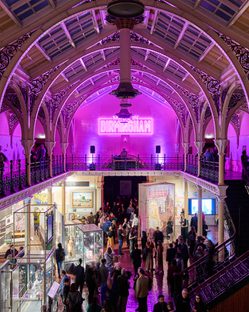
Refurbishing Birmingham Museums & Art Gallery and advancing plans for a new museum of science
We’re raising funds for Birmingham’s largest museums to be refurbished, reorganised and redisplayed in an inclusive way, to appeal to all of Birmingham’s communities.
Birmingham Museum & Art Gallery (priority)
Goal:
- Raise capital funding for and start refurbishment of Birmingham Museum & Art Gallery (BMAG), to reopen the full museum in the early 2030s.
How the museum will be transformed:
- We will upgrade Birmingham Museum & Art Gallery's spaces (public and non-public) to increase its civic use, offering a wider range of experiences, activities and uses to benefit all of Birmingham’s communities and the economy.
- We will redisplay Birmingham Museum & Art Gallery focused on the people of Birmingham, telling stories and perspectives that reflect the diversity of the city and its uniqueness.
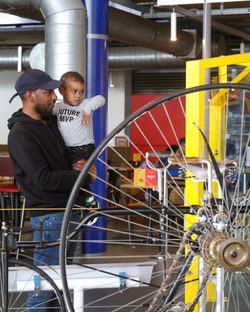
Thinktank
Goal:
- Improve the visitor experience at Thinktank.
- Use our ‘City of Ideas’ museum of science and industry feasibility study to inform long term redevelopment plans at Millennium Point, to grow audiences, income and STEAM engagement across Birmingham, to be realised within the 2030s.
How the museum will be transformed:
- We will enhance the visitor experience at Thinktank with modern, flexible exhibition spaces, an upgraded planetarium, a better environment to show more collections, and an expanded commercial offer.
- The future museum will elevate Birmingham Museums Trust’s role as a leader on STEAM engagement – including natural science – across the city, supporting communities to share their stories about the role of local people in science and industry – past, present and future.
Other sites require major investment, once the future of Birmingham Museum & Art Gallery and the science museum have been secured. For example, the Museum Collection Centre requires major capital investment to create a publicly accessible modern collections centre on the current site, with state-of-the-art facilities.
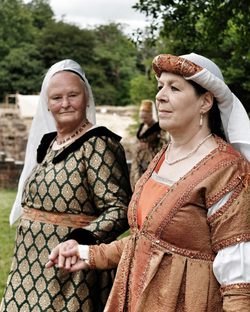
Working with Birmingham City Council and local citizens to put historic properties at the heart of our communities
The historic properties¹ around Birmingham are vital parts of our city’s heritage. They can be hubs for community activity, but current funding is inadequate to maintain, open and deliver a visitor experience at these.
Situation
- The six historic properties cost £900k annually to maintain and open. The requirement to balance priorities in the services we need to deliver makes this a challenge we are currently unable to resolve.
- To secure public access, we need a solution that meets community needs and is financially sustainable.
Action:
- We will continue to work with Birmingham City Council on a long-term solution to fund access to these sites, including in working out the Service Level Agreement for 2026–30, so that these can remain open beyond 2025.
- We will also engage with Birmingham’s communities to understand their needs from these sites, and how communities and organisations could play a greater role in their operation.
This could lead to…
- Working with special interest groups to deliver experiences at the sites.
- Hiring out spaces to local workers including creatives, craftspeople and artists.
- Offering spaces for use by community groups.
- Hosting pop-up markets (e.g. craft, art, food).
- Renting spaces to local or national educational organisations.
- Creating and hiring out distinct spaces within the sites for commercial use.
¹ Aston Hall, Blakesley Hall, Museum of the Jewellery Quarter, Sarehole Mill, Soho House, Weoley Castle – 2024-25 Budget Forecast for Birmingham Museums Trust.
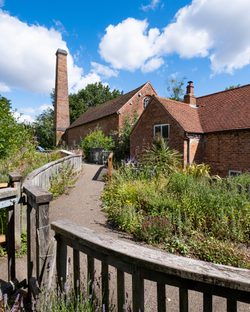
Preserving the museum sites and protecting the environment
We’ll work with Birmingham City Council to get ahead of museum site maintenance and repairs, and to reach Net Zero by 2040 – engaging our audiences in protecting our city’s urban environment.
In 2022, we commissioned audits of each site we manage. For the first time, we now have a complete picture of the immediate and five-year maintenance and repair needs across our estate¹. This enables us, alongside Birmingham City Council, to make better decisions to sustain and improving Birmingham’s heritage site.
We will respond to these audits by:
Developing a five-year rolling programme of maintenance and repair for all Birmingham Museums Trust sites, and a capital fund to support this.
We are reviewing and prioritising the actions identified in the audits.
This will allow us to work with Birmingham City Council to agree how works should be prioritised, and by whom:
- Works for Birmingham Museums Trust to commission, funded through our own maintenance and repair budget.
- Works for Birmingham City Council and Millennium Point Trust to commission and fund, as our corporate landlords.
- Works for Birmingham City Council and Birmingham Museums Trust, or Millennium Point Trust and Birmingham Museums Trust to work together to fund.
Commissioning a roadmap to Net Zero, informing our wider Climate Action Plan.
These plans will:
- Set out measures to improve the energy efficiency of our sites.
- Protect biodiversity in sites like Sarehole Mill and Soho House, which provide urban wildlife habitats.
- Identify actions to improve our ways of working.
- Show how Birmingham Museums Trust will work with communities to improve the environment – for example through learning programmes and the work we present.
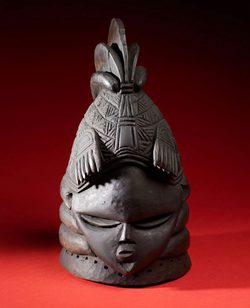
Opening up digital access and involving people in collections decisions
We are working to make our collections digitally accessible for audiences in Birmingham and beyond.
- We will continue the Dynamic Collections programme, which aims to make Birmingham’s collections fully digitally accessible by 2032.
- Over the next five years, our focus will include:
- Establishing and launching a mass digitisation programme for museum objects.
- Developing a plan and prototype for an online interface for the digital collection.
Birmingham’s citizens will play an increasingly important role in shaping the future of our collections.
Our experience commissioning a Citizens’ Jury in 2024 demonstrated the value of involving Birmingham’s people in decisions about their museums.
We want to involve a Citizens’ Jury in developing our next five-year Collections Development Policy. This has been delayed by a year to allow time for fundraising and establishing a jury, which will shape our approach to collections and contribute to the policy.
Example: Sub-Saharan African Collections Programme.
Birmingham Museums Trust holds significant Global Majority collections – including collections of historic objects from Sub- Saharan Africa – but these are under-researched, not digitised and have limited public access. There is great value in better understanding these collections, and we have a responsibility to display them appropriately and, in some cases, to return objects to their communities of origin.
We will work with international communities and researchers, and train and support Birmingham residents to audit, document and digitise these collections to make them more accessible.
This programme will also reinterpret and redisplay these collections, and support restitution, guided by community and research expertise and our collections strategy.